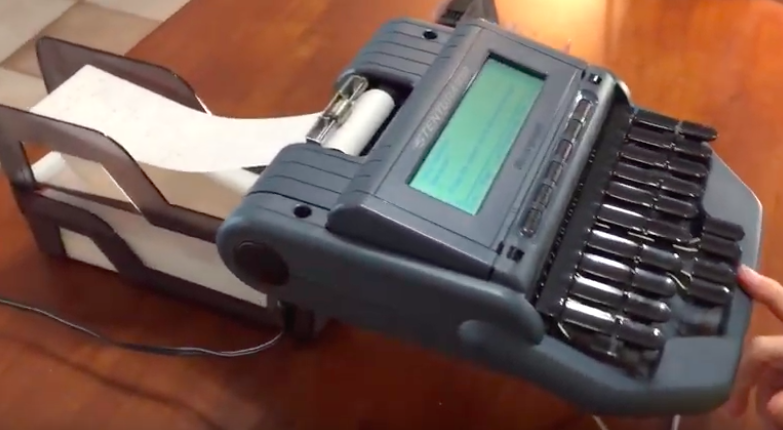 One thing is for certain. Everyone in the courtroom wants a deposition to go smoothly. It is important so that it’s more productive for those on the stand, less stressful for the witnesses, and easier for the court reporters to get the job done. You may be unaware of a few simple things you can do in aiding a good record as well as increasing both clarity and efficiency.
One thing is for certain. Everyone in the courtroom wants a deposition to go smoothly. It is important so that it’s more productive for those on the stand, less stressful for the witnesses, and easier for the court reporters to get the job done. You may be unaware of a few simple things you can do in aiding a good record as well as increasing both clarity and efficiency.
Here are five things court reporters wish people would do:
Ask Witnesses to Speak Clearly
Attorneys tell deposition witnesses that they will have to answer questions out loud with verbal replies, rather than relying on head nods and shrugs. For the best results, further instructions are required, including:
- Advise the witnesses in advance to speak verbally, do not rely on answers like “uh-huh”
- Warn witnesses against speaking while the attorney is still asking questions. This can create confusion and results in “cross-talk” on the record
- Intervene if nervous witnesses speak in low tones, mumble, or even worse, cover their mouths while speaking
While the court reporter can ask the witness to speak up or repeat the last response, attorneys instructing their witness in advance can streamline the process and avoid interruptions.
Provide Info in Advance
Sharing information in advance makes the court reporter’s job easier and makes the deposition more efficient. To keep the deposition flowing:
- Provide the Notice of Deposition when you schedule the deposition so the court reporter can review for pertinent information. Information like the case number, venue, appearances, and name spellings
- Provide information like attorney names and spellings that are not on the Notice of Deposition
- Ask witnesses to clearly state and spell their full names at the beginning of their testimony
- Provide the court reporter with any material read or quoted in the record if not already contained in the exhibits
Slow Down the Pace
Court reporters type fast. They type very fast. In fact, certification by the National Court Reporters Association (NCRA) requires a minimum speed of 225 words per minute, which is about the average person’s speaking rate. That being said, attorneys often talk fast, so they are a challenge. Maintaining a steady pace helps ensure that the court reporter won’t have to stop for clarification.
Circumstances in which unconsciously speeding up is common include:
- Reciting “rote” content, such as terms and legal citations
- Reading content into the record
- When tensions escalate and the interaction becomes heated
Remember Court Reporters Can Only Do One Thing at a Time
This tends to be overlooked because the other participants in the deposition, attorneys included, can continue to talk while doing something else with their hands. Court reporters, however, can’t take their hands off the keys and continue to do the job. If you’ve asked your reporter to perform another task, such as marking an exhibit, be sure to pause and wait until the court reporter is ready to start writing again to ask your next question.
It is OK to Take Breaks
Attorneys and witnesses are often eager to get depositions over with, but court reporting requires constant focus and typing, so periodic breaks are quite necessary and welcomed by court reporters. A 15-minute break every two hours would be a great idea for the court reporter. Using that break time is a great opportunity to check in with the court reporter and make sure everything is running smoothly.
CourtScribes.com supports all states and programs that aid in the court reporting world, and we too are ready to serve you in your court reporting, videography services, interpreters, live-streaming, and video-to-text synchronization.
Although the majority of cities that offer CourtScribes’ services are in Florida, the company home base, other cities all across these United States that CourtScribes offers services in, are the following: Jacksonville, Miami, Tampa, Port St. Lucie, Fort Lauderdale, Cape Coral, Coral Springs, Clearwater, Palm Bay, Fort Myers, Weston, Sarasota, Orlando, St. Petersburg, Hialeah, Stuart, Hollywood, Naples, West Palm Beach, Boca Raton, Deerfield Beach, Jupiter, Key West, Coral Gables, Maryland, Manhattan, Buffalo, Washington DC, Baltimore, Bowie, Virginia, Frederick, Albany, New York, Brooklyn, Westchester, Gaithersberg, and Rockville.
